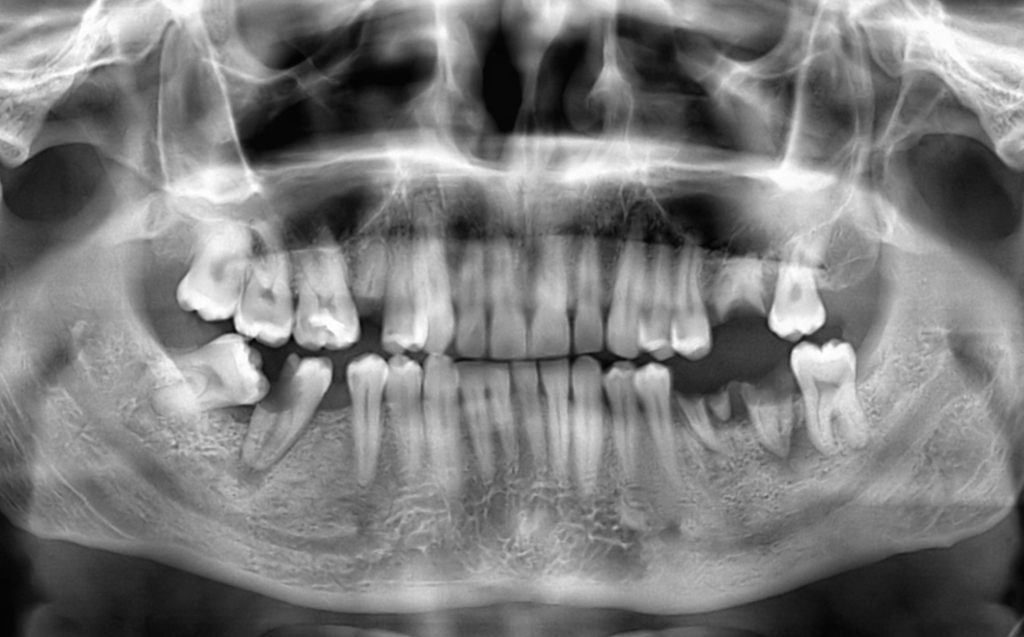With a variety of restorative dentistry procedures available, the team at Fort Bend Dental can often save even severely damaged teeth. Nevertheless, if you have extensive decay or have experienced trauma, you may benefit from a tooth extraction. At our practices in Missouri City, Richmond, Rosenberg, Aliana and Sugar Land, TX, our doctors will take special care to provide an extraction with a gentle touch designed to minimize discomfort. Your dentist can also provide follow-up treatment, such as socket preservation with a state-of-the-art dental restoration, to renew your smile and optimize oral function.

We can perform a wisdom tooth extraction to address impacted or misaligned wisdom teeth.
Should Your Tooth Be Extracted?
Of course, whenever possible, it is best to save damaged teeth. Nevertheless, in some cases, extraction may be preferable. You may benefit from tooth removal if you have experienced:
- Extensive decay that has affected the majority of your tooth
- A loosened tooth, due to gum disease or some other cause
- Dental infection that is too severe to be remedied by root canal therapy
- A cracked tooth that has affected the root
- A lack of adequate space for your wisdom teeth to erupt properly or an impacted tooth
Tooth extraction may also be recommended if an over-retained baby tooth or an extra tooth is preventing your child’s permanent teeth from coming in.
Following extraction, we can use advanced techniques to restore your smile and dental function as quickly as possible.
What to Expect During Extraction
Before extraction, your dentist will take x-ray images of your mouth. With these images, your doctor can examine the position of your tooth and determine how he can best remove it with minimal impact to your jaw.
To ensure your comfort throughout treatment, your practitioner will numb your gums and the surrounding tissue. Next, he will gently loosen your tooth before removing it. If your tooth is particularly hard to remove, or if it is coming in at angle, your dentist may need to make an incision in the gum, remove bone tissue, or extract it in several pieces. This approach is more common during wisdom tooth removal. Even in cases of hard-to-remove teeth, however, our extractions will involve minimal discomfort and a speedy recovery.
Restoring Your Smile
Once a tooth falls out or is extracted, your jawbone will quickly start to recede. To slow this process, your dentist may perform a socket preservation procedure. During this treatment, the doctor will place a small piece of artificial bone in your tooth socket and then use sutures to close the gums. This treatment will provide a more secure base for your restoration.
Following extraction, we want to restore your smile and dental function as quickly as possible. We offer a full range of tooth replacement options, including dental implants. Implants will prevent further jawbone recession because the metal posts send regenerative signals to your jaw. Even before extraction, your dentist will discuss your restorative options, helping you to choose the treatment that is most appropriate for your health needs, budget, and cosmetic goals.
Contact Us to Schedule a Consultation
Although we will take every measure possible to save damaged teeth, extraction is often the best way to restore your oral health. To learn more about tooth extractions, contact Fort Bend Dental today.

